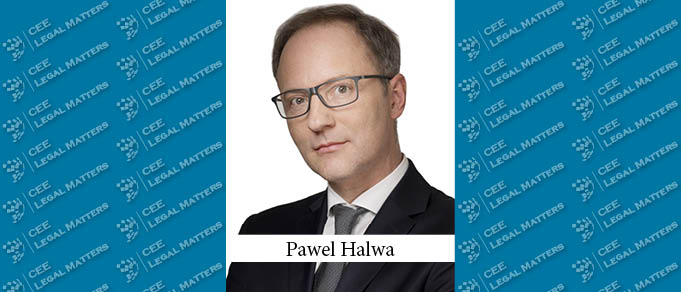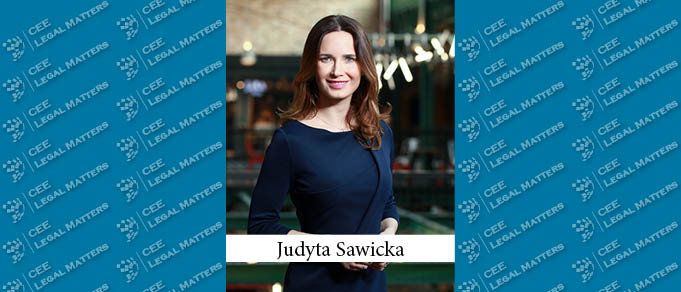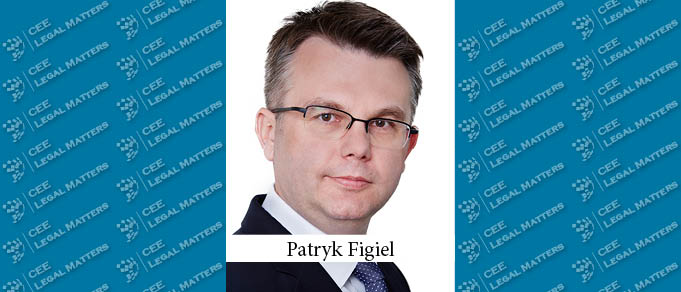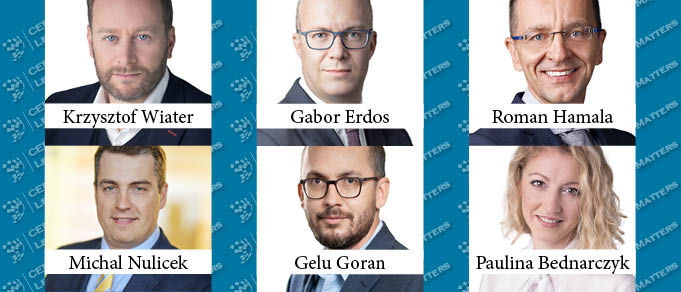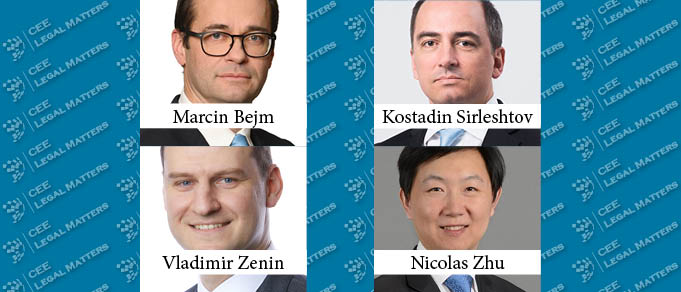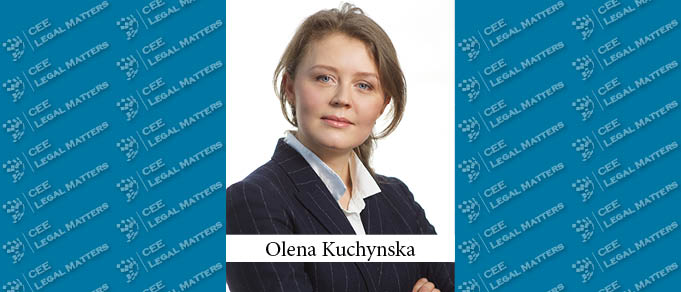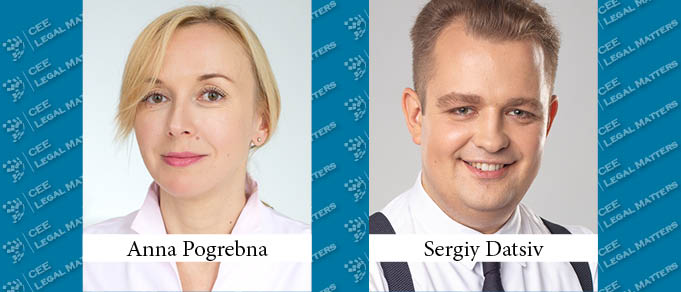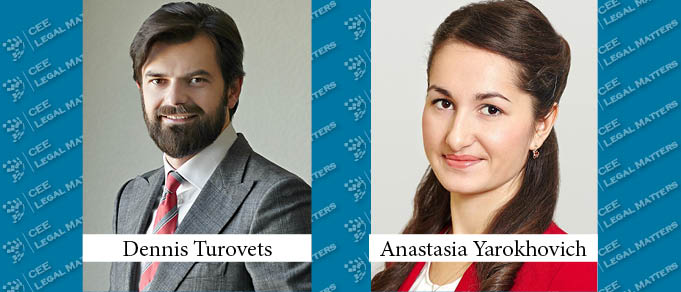Looking back at 2020, one can draw some conclusions and identify some trends in the Polish transactional market likely to stay with us in 2021.
Inside Insight: Judyta Sawicka, Head of Legal at Globalworth
Interview with Judyta Sawicka, Head of Legal at Globalworth about her background and best practices.
Expat On The Market: Ben Davey of WKB Wiercinski, Kwiecinski, Baehr
An interview with Ben Davey of WKB Wiercinski, Kwiecinski, Baehr, about his path from Australia to Poland.
Market Snapshot: Energy Transition and Digital Infrastructure – The Drivers of the Polish Legal Market
Energy transition and digital infrastructure are two areas in which clients are increasingly asking for advice in Poland – areas of the Polish economy which have thus far proved highly resilient to the COVID-19 pandemic.
Starting in Style: Interview with the Partners of the New NGL Symbio Alliance
Interview with the Partners of the New NGL Symbio Alliance.
The Cutting Edge: The Technology Team at Kochanski & Partners
Blockchain, Cloud Computing, and Artificial Intelligence are more than buzzwords – they are concepts critical to the rapid technological development occurring across all industries. We spoke to Partners Piotr Galka, Piotr Kaniewski, and Szymon Ciach in Kochanski & Partners’ Technology team to learn more.
Advising from Afar: Lawyering in a Time of Social Distancing
Within days of the coronavirus’s arrival in March, the Polish government was scrambling to react, with lockdowns, subsidies and stimulus, public health requirements, and other measures coming rapidly, on an ad hoc basis, with the need for speed making it difficult for Polish companies (and Poles in general) to keep up, and forming a patchwork of ideas rather than a comprehensive and coherent plan.
Guest Editorial: The Times They Are A-Changin’
The legal market in Europe is ever-changing, but now, as we approach the turn of the year, there is no doubt we are at a pivotal moment. One could say that the tide has risen and the world of legal services as we know it is gone. While it would be easy to blame everything on the pandemic, the COVID-19 crisis has merely accelerated certain processes that have been swelling up and ready to burst for quite some time. The trends we have been observing have just gained momentum. It is essential that law firms accept the challenges and prudently navigate the dangers.
The New Foreign Direct Investment Screening Regime Under Austrian and Slovenian Law
After many years of liberalization and globalization, recent years have shown a reversal of the European Union’s approach concerning foreign direct investment from third countries. As in much of the world, the EU has taken a more restrictive view than in the past, and this view is reflected on the legislative level with the FDI Screening Regulation.
The Chinese Belt and Road Initiative: Infrastructure Opportunities in CEE
The Chinese Belt and Road Initiative is one of the most ambitious development projects since the turn of the century. Through thousands of individual projects implemented under the BRI umbrella, China intends to develop land and sea corridors to support economic trade and development, integrate various regions of the world, and facilitate policy coordination, connectivity, unimpeded trade, financial services, and the connection of people. The BRI was launched in 2013, and last year was revamped with a new set of objectives.
Marketing Law Firm Marketing: Most Valuable Software Tool
New technologies are all the rage, as law firms adapt to the telecommuting and digitalization realities that accompanied the Covid-19 pandemic. Accordingly, we decided to ask our Law Firm Marketing experts from across the region a simple question: “What is the single most important/valuable piece of software you use?” As always, we asked respondents to focus on the question at hand, rather than – as we put it – using the question simply as an excuse to “tell us that their firms are awesome.” Not everyone was able to resist.
Guest Editorial: What is Changing in Lawyering in the Region
January is a perfect time to look back and plan for the future. To reconsider our accomplishments and learn our lessons. To think what could have been done better, more efficiently, or just in a different way. To set our expectations, make commitments, and dream big.
The Confident Counsel: Going Industrial – Writing Popular Articles
After billing 500 hours for the past month, you finally found some quality time to write an article for your loving clients. After you send it out, you watch your phone with bated breath, anticipating that avalanche of new business that’s just about to pour in. Then, nothing.
Ukraine Changes Its Financial Monitoring Rules
On April 28, 2020, Ukraine’s “On Prevention and Counteraction the Legalization (Laundering) of Proceeds from Crime, Financing Terrorism and Financing the Proliferation of Weapons of Mass Destruction” Law (the “AML Law”), which replicates the recommendations of the Financial Action Task Force and implements provisions of 4th Anti-Money Laundering Directive ((EU) 2015/849), came into force.
Legal Regulation of Cryptocurrencies in Belarus
In 2018, Decree of the President of Belarus No. 8 “On Development of Digital Economy” entered into force, which, inter alia, legally recognized cryptocurrencies in Belarus. In this article we briefly summarize the main aspects of the Belarusian regulatory framework for cryptocurrencies, along with significant risks and perspectives.
Estonia: Change to Success
Despite the shocking and unanticipated effects of the first pandemic wave in spring 2020, the focus has shifted, now that the second wave is rolling in, from supporting affected individuals with state salary supplements and banking-sector-provided grace periods to the necessity for a more holistic view in order to help affected industries survive.
Latvia: Navigating the Jungle – Anti-Money Laundering and Sanctions Compliance
In February, 2020, the Latvian authorities breathed a sigh of relief after the Financial Action Task Force voted against adding Latvia to the so-called “grey list” of jurisdictions with strategic anti-money laundering deficiencies. Prior to that, MONEYVAL, the permanent monitoring body of the Council of Europe entrusted with the task of assessing compliance with the principal international standards to counter money laundering, found that Latvian financial institutions had failed to introduce sufficient methods to identify suspicious funds primarily associated with clients from the former Soviet bloc countries.
Lithuania: Is the EU’s New Crowdfunding Regulation an Opportunity for Lithuania?
On the 5th of October, the new regulation of the European Parliament and of the Council on European crowdfunding service providers for business was approved. Although crowdfunding activities are already regulated in Lithuania by national laws, this new regulation represents a real opportunity for Lithuania and Lithuanian crowdfunding service providers.

